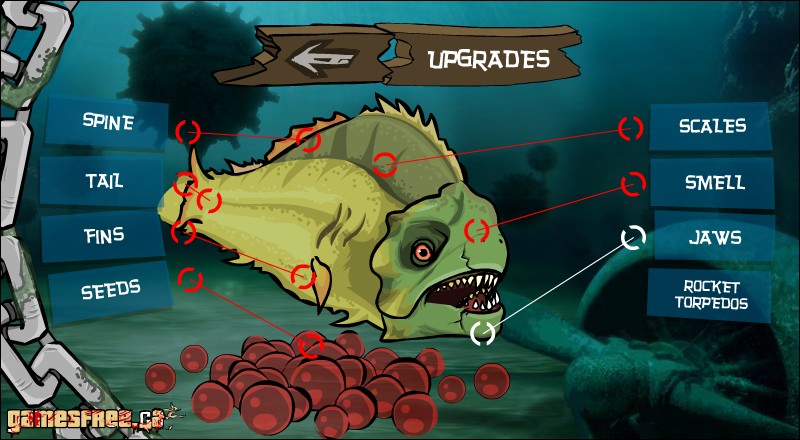- About Press Copyright Contact us Creators Advertise Developers Terms Privacy Policy & Safety How YouTube works Test new features.
- Numo is a game which is combined of puzzles and block games like Tetris. You have a limited time to pass for each level. If you pass a level, a new level starts right after it. You need to pass levels as soon as possible. If you like to play sudoku, tangram, tetris, puzzle, chess; we are sure that you will love Numo. How to play this game? 1 - Press start. 2 - Each block have a specific.
Feed Us Xmas Xpansion. 89% 122,774 plays Feed Us. 85% 182,823 plays Hi there! Did you know there is a Y8 Forum? Join other players talking about games. Forbes' Games section is focused on the products dominating the market, the young entrepreneurial minds driving the industry, and all the idiosyncrasies emblematic of gaming. From million-dollar.
Ag Facts
While watermelons are grown across the United States, most production occurs in 4 southern and western States that offer consistently warm temperatures of 70 to 90 degrees Fahrenheit for a growing season that requires up to 3 months.
Most commercial production is limited to the South and Southwest. Florida has historically been the top producer of watermelons and accounted for 19 percent of the 3.9 billion pounds of U.S. watermelon production in 2012. Florida and three other States—Georgia, California, and Texas—accounted for two-thirds of U.S. output in 2012.
Download apfs retrofit kit for macos by paragon software. Seedless varieties are in increasing demand, and the share of seedless watermelon in total watermelon shipments in the United States increased from 51 percent in 2003 to 83 percent in 2012.

Seedless varieties, typically started as transplants rather than from direct seeding, require more intensive management and are more reliant on bee pollination than seeded varieties, with the cost differences generally visible at the retail level.
This chart is updated from Fruit and Tree Nuts Outlook: June 2012.
Nearly anywhere you go, it's easy to find children and adults alike transfixed by their phones, and while texting and social media certainly claim a big part of that attention, increasingly it's gaming that's drawing us in.

At the World Health Organization's World Health Assembly on Saturday, member states officially recognized gaming addiction as a modern disease. Last year, the WHO voted to include gaming disorder as an official condition in the draft version of its latest International Classification of Diseases (ICD); the vote finalizes that decision. The WHO's ICD, currently in its 11th edition, serves as the international standard for diagnosing and treating health conditions.
According to Tarik Jasarevic, a spokesperson for the WHO, the move is 'based on reviews of available evidence,' and reflects general agreement among experts around the world that some people show a 'pattern of gaming behavior characterized by impaired control,' prioritizing gaming over other daily responsibilities, including attending school or work and keeping social appointments.
According to the WHO experts who analyzed studies on gaming behavior, people's use of gaming is different from their use of the internet, social media, online gambling and online shopping. There isn't sufficient data, they say, to indicate that people's reliance on those is a 'behavioral addiction' the way gaming can be.
According to the new definition, gaming behavior shifts into a disorder when it takes precedence over other daily activities, and starts to impair a person's relationships, school or work responsibilities for at least a year.

Still, not all behavior experts agree that gaming is distinct enough from other internet or smartphone-based behavior, and question why gaming is singled out. The criteria used by the WHO are similar to those used to distinguish any addictive behavior—namely. that the behavior starts to take priority over a person's life to the exclusion of behaviors essential to good health.
Some researchers note that not enough research has been done on gaming behavior, and particularly the gaming culture, to warrant its description as a disorder. Michelle Colder Carras, an independent contractor on public mental health issues who has published research on gaming behavior, does not rule out that some gaming behavior can be problematic, but notes that some of the studies highlighting the addictive and all-consuming nature of gaming, include not just gaming but general internet and smartphone use, and therefore may not measure gaming's specific effect.
'The problem with gaming and other…new media is that they produce a different culture,' says Carras, who also considers herself a gamer. 'But clinicians are approaching this behavior from an understanding of a disorder based on a continuum of normative, recreational and problematic use rather than from the setting or context of a unique, new culture.' Carras, for example, points out that gaming fulfills a participatory and social need for some.
Rather than singling out gaming, Carras and others support the idea of researching internet use and potentially problematic dependence on technology more broadly, to better understand some of the commonalities that patterns of gaming, social media and internet use might share.
At the very least, however, the inclusion of gaming disorder in the ICD may raise awareness about potentially concerning ways that people rely on gaming, and trigger new research on it as well as other technology-related behaviors that will only continue to grow as devices and internet access reach more and more people around the world.
Get our Health Newsletter. Sign up to receive the latest health and science news, plus answers to wellness questions and expert tips.
Thank you!
For your security, we've sent a confirmation email to the address you entered. Click the link to confirm your subscription and begin receiving our newsletters. If you don't get the confirmation within 10 minutes, please check your spam folder.

Seedless varieties, typically started as transplants rather than from direct seeding, require more intensive management and are more reliant on bee pollination than seeded varieties, with the cost differences generally visible at the retail level.
This chart is updated from Fruit and Tree Nuts Outlook: June 2012.
Nearly anywhere you go, it's easy to find children and adults alike transfixed by their phones, and while texting and social media certainly claim a big part of that attention, increasingly it's gaming that's drawing us in.
At the World Health Organization's World Health Assembly on Saturday, member states officially recognized gaming addiction as a modern disease. Last year, the WHO voted to include gaming disorder as an official condition in the draft version of its latest International Classification of Diseases (ICD); the vote finalizes that decision. The WHO's ICD, currently in its 11th edition, serves as the international standard for diagnosing and treating health conditions.
According to Tarik Jasarevic, a spokesperson for the WHO, the move is 'based on reviews of available evidence,' and reflects general agreement among experts around the world that some people show a 'pattern of gaming behavior characterized by impaired control,' prioritizing gaming over other daily responsibilities, including attending school or work and keeping social appointments.
According to the WHO experts who analyzed studies on gaming behavior, people's use of gaming is different from their use of the internet, social media, online gambling and online shopping. There isn't sufficient data, they say, to indicate that people's reliance on those is a 'behavioral addiction' the way gaming can be.
According to the new definition, gaming behavior shifts into a disorder when it takes precedence over other daily activities, and starts to impair a person's relationships, school or work responsibilities for at least a year.
Still, not all behavior experts agree that gaming is distinct enough from other internet or smartphone-based behavior, and question why gaming is singled out. The criteria used by the WHO are similar to those used to distinguish any addictive behavior—namely. that the behavior starts to take priority over a person's life to the exclusion of behaviors essential to good health.
Some researchers note that not enough research has been done on gaming behavior, and particularly the gaming culture, to warrant its description as a disorder. Michelle Colder Carras, an independent contractor on public mental health issues who has published research on gaming behavior, does not rule out that some gaming behavior can be problematic, but notes that some of the studies highlighting the addictive and all-consuming nature of gaming, include not just gaming but general internet and smartphone use, and therefore may not measure gaming's specific effect.
'The problem with gaming and other…new media is that they produce a different culture,' says Carras, who also considers herself a gamer. 'But clinicians are approaching this behavior from an understanding of a disorder based on a continuum of normative, recreational and problematic use rather than from the setting or context of a unique, new culture.' Carras, for example, points out that gaming fulfills a participatory and social need for some.
Rather than singling out gaming, Carras and others support the idea of researching internet use and potentially problematic dependence on technology more broadly, to better understand some of the commonalities that patterns of gaming, social media and internet use might share.
At the very least, however, the inclusion of gaming disorder in the ICD may raise awareness about potentially concerning ways that people rely on gaming, and trigger new research on it as well as other technology-related behaviors that will only continue to grow as devices and internet access reach more and more people around the world.
